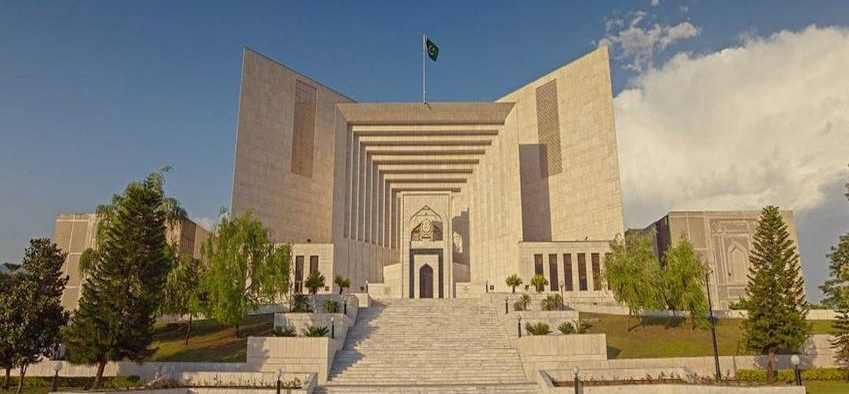Once a matter is decided by the Supreme Court of Pakistan, all institutions, including the ECP, are bound to implement it without exception --- Supreme Court of Pakistan
Islamabad 20-09-2024: The Supreme Court of Pakistan, in a significant ruling, dismissed an application by the Election Commission of Pakistan (ECP) that sought clarification regarding the political affiliation of Pakistan Tehreek-i-Insaf (PTI) candidates. The ECP’s application, [CMA No. 7540 of 2024], aimed to question the validity of PTI’s organizational structure and its ability to confirm the political affiliation of its returned candidates (Members of the National Assembly and Provincial Assemblies).
The Court, led by a panel of esteemed judges including Mr. Justice Syed Mansoor Ali Shah, Mr. Justice Munib Akhtar, and Ms. Justice Ayesha A. Malik, upheld its earlier decision from July 12, 2024, which affirmed PTI’s right to participate in the elections and recognized the party’s status under the Constitution of Pakistan. The case also included PTI’s reply, [CMA No. 8139 of 2024], which defended the party’s structure and certifications.
The Court’s ruling reaffirms several legal principles and provides clear guidance on the roles of political parties and the ECP in electoral matters:
The Court reiterated that under Article 51(6)(d) & (e) and Article 106(3)(c) of the Constitution of Pakistan, PTI retains its status as a political party and can field candidates regardless of the lack of an election symbol. The judgment clarified that this status was not affected by internal organizational issues within the party.
The Court was critical of the ECP’s application, calling it a “contrived device” aimed at delaying the implementation of the earlier Short Order. It noted that the ECP itself had recognized Barrister Gohar Ali Khan as PTI’s Chairman in official correspondence, only to later challenge his authority. The Court applied the de facto doctrine, which validates the actions of individuals holding office, even if their legal right to do so is later questioned.
The Court emphasized that the ECP cannot approbate and reprobate by first recognizing PTI’s leadership and then seeking clarification on its ability to act on behalf of the party. This inconsistency was found to be legally unsustainable.
The Court reaffirmed that the ECP’s duty to issue the list of returned candidates affiliated with PTI is a ministerial function. The Commission’s refusal to carry out this function was declared unconstitutional and could expose the ECP to further legal consequences.
The judgment harshly criticized the ECP for employing dilatory tactics to delay the implementation of the Court’s previous orders. It described the Commission’s actions as an attempt to obstruct the course of justice and warned of serious consequences if the ECP continues to defy its constitutional obligations.
The Court concluded that the status of the returned candidates as members of PTI’s parliamentary party in the National Assembly and Provincial Assemblies had been lawfully determined when the requisite declarations and certifications were filed. Any further questioning of this process was constitutionally and legally baseless.
The Supreme Court of Pakistan ordered the ECP to immediately recognize the returned candidates as members of PTI and to perform its legal duties without further delay. Failure to comply with the Court’s orders could result in legal action against the Commission.
This ruling marks another crucial moment in the ongoing political and legal developments surrounding PTI’s participation in Pakistan’s electoral process. The Court’s firm stance reaffirms the principle that once a matter is decided by the Supreme Court of Pakistan, all institutions, including the ECP, are bound to implement it without exception.
The judgment reinforces key constitutional principles concerning the rights of political parties and the role of the ECP in election management. The Court’s dismissal of the ECP’s application highlights the judiciary’s role in ensuring adherence to the rule of law and preventing public authorities from engaging in obstructionist tactics. The ruling also underscores the importance of consistency and good faith in the actions of public institutions.
Powered by Froala Editor








